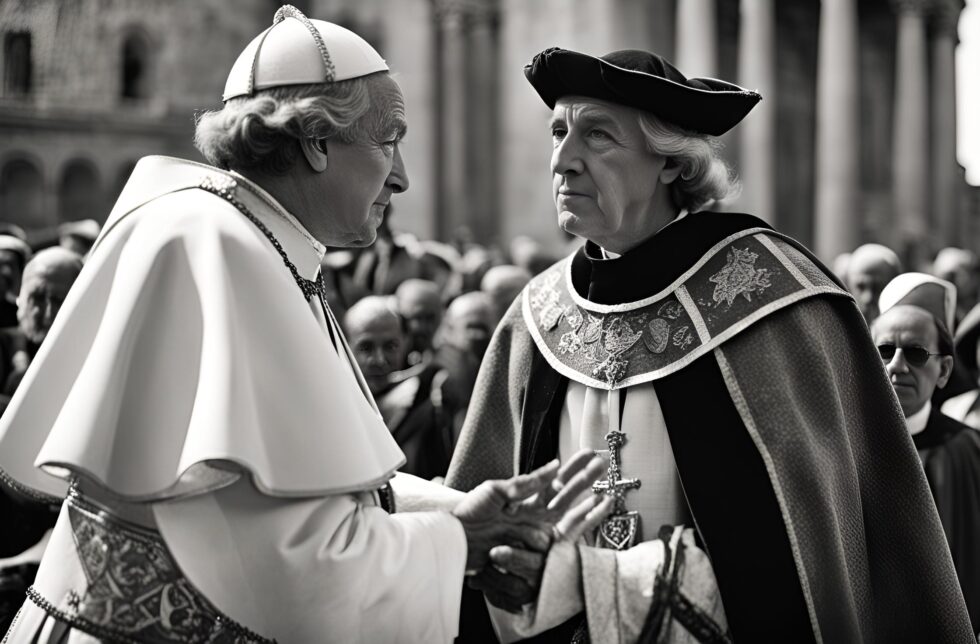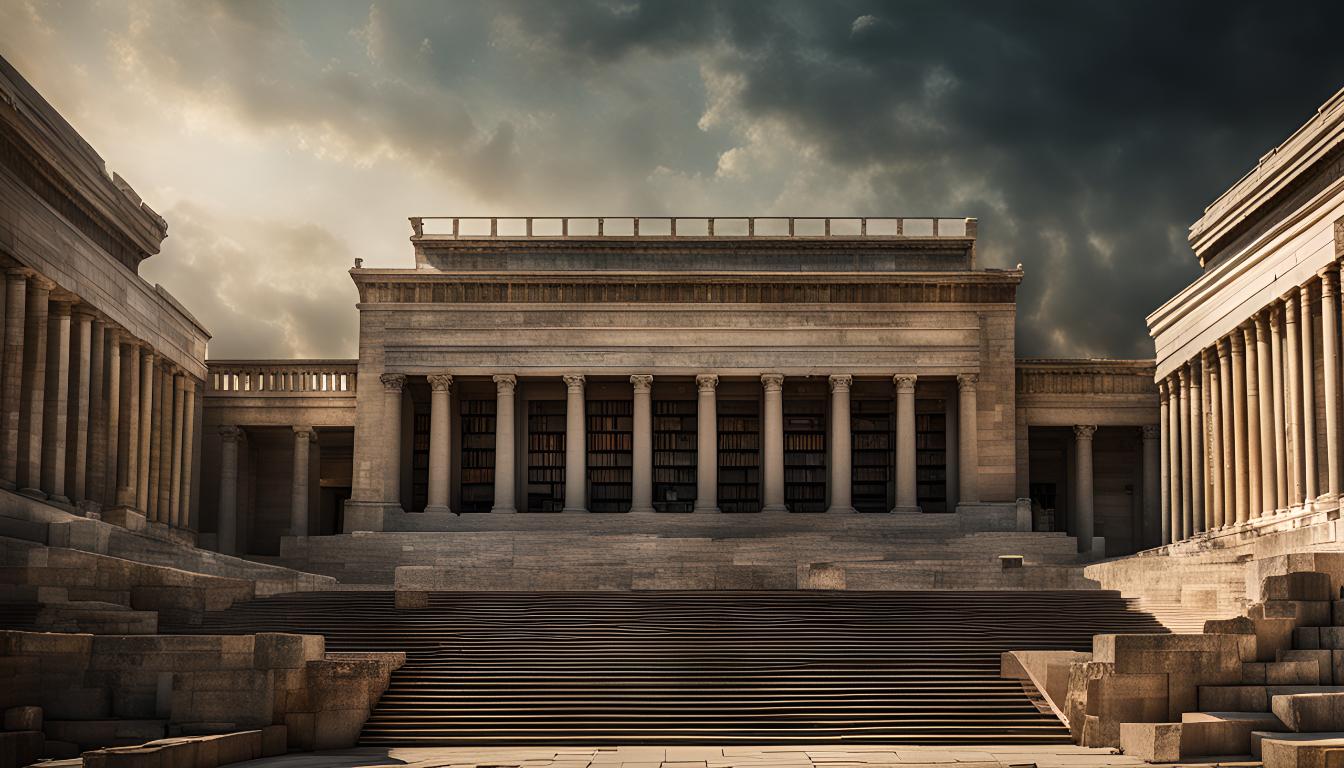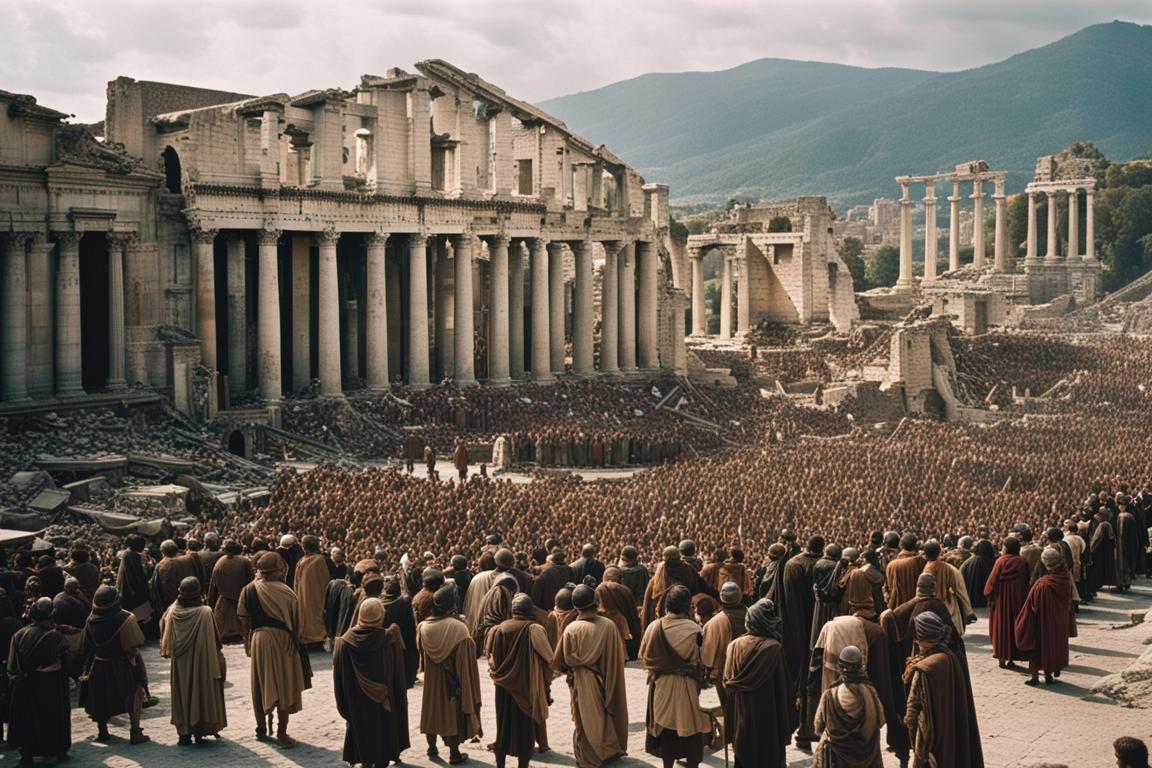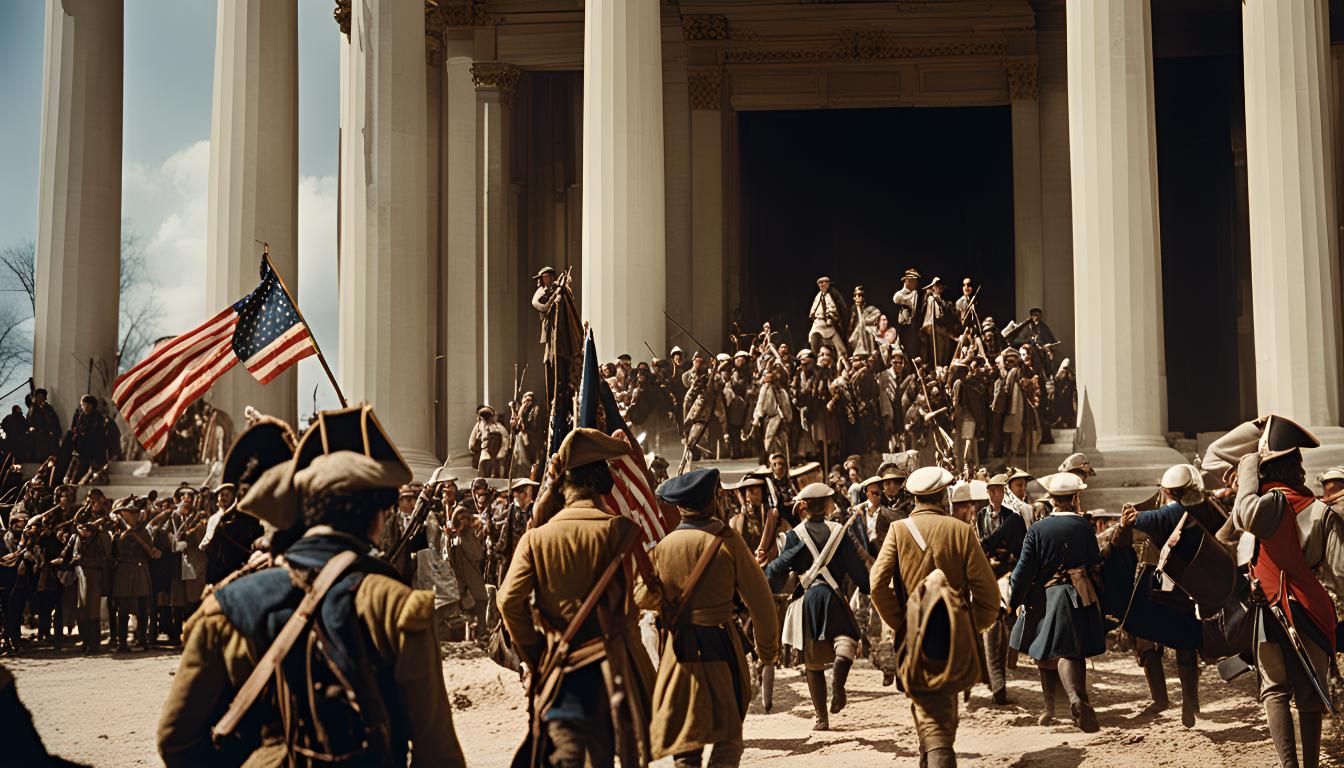
In the bustling port city of Genoa, a young and ambitious Christopher Columbus stood before the Doge of Genoa, pleading his case. The year was 1491, and Columbus’s dream of discovering a new route to the Indies had been met with skepticism across Europe. However, in his homeland of Italy, he found a receptive audience. The Doge, intrigued by the potential wealth and power such a discovery could bring to the Republic of Genoa, agreed to sponsor Columbus’s voyage.

Columbus’s fleet, consisting of three ships—the Santa Maria, the Pinta, and the Niña—embarked on their historic journey from the port of Genoa. The voyage was fraught with peril, but Columbus’s unwavering determination and the support of his Genoese crew saw them through. After weeks at sea, they finally sighted land. Columbus believed he had reached the Indies, but in reality, he had stumbled upon a new world. The first steps on this uncharted land were taken not by Spanish conquistadors but by Genoese explorers.
News of Columbus’s discovery spread like wildfire upon his return to Genoa. The Doge and the city’s elite were ecstatic, envisioning the immense wealth and influence that awaited them. Genoa, already a significant maritime power, now had the potential to dominate global trade. The Republic quickly organized subsequent expeditions to the newly discovered lands, establishing colonies and trade routes. The Genoese influence began to spread across the Atlantic, with settlements sprouting up in what would later be known as the Americas.
As Genoa’s power grew, so did its rivalry with other European powers. The Spanish and Portuguese, who had previously dominated exploration and colonization, now found themselves competing with a resurgent Genoa. Tensions rose as the Genoese established a foothold in the Caribbean and along the eastern coast of what would become the United States. The wealth flowing into Genoa from the New World transformed the city into a bustling metropolis, attracting merchants, artists, and scholars from across Europe.

The cultural impact of Genoa’s newfound wealth was profound. The city became a hub of the Renaissance, with artists like Leonardo da Vinci and Michelangelo flocking to Genoa to seek patronage. The Genoese Republic, flush with riches from the New World, funded grand architectural projects, including magnificent cathedrals and palaces. The city’s universities flourished, producing some of the greatest minds of the era. Genoa’s influence extended beyond Europe, as its explorers continued to chart new territories and establish trade networks.
However, the rapid expansion of Genoa’s empire was not without its challenges. The indigenous peoples of the Americas, initially welcoming, grew increasingly resistant to Genoese colonization. Conflicts erupted as the Genoese sought to impose their rule and extract resources. The harsh treatment of indigenous populations led to uprisings and rebellions, forcing Genoa to divert significant resources to maintain control. The moral and ethical implications of their actions began to weigh heavily on the Genoese conscience, sparking debates within the Republic about the true cost of their empire.
Amidst these challenges, a new generation of Genoese leaders emerged, advocating for a more humane approach to colonization. They sought to establish mutually beneficial relationships with the indigenous peoples, promoting trade and cultural exchange rather than conquest. This shift in policy led to a period of relative peace and prosperity, as Genoa’s colonies began to thrive. The blending of European and indigenous cultures gave rise to a unique and vibrant society, with new art forms, culinary traditions, and languages emerging from the fusion.
As the 16th century drew to a close, Genoa’s influence reached its zenith. The Republic had transformed from a regional maritime power into a global empire, shaping the course of history in ways that few could have imagined. The legacy of Columbus’s voyage, sponsored by the foresight of the Genoese Doge, had forever altered the trajectory of the human race. The world had been irrevocably changed, not by the Spanish crown, but by the vision and ambition of the Republic of Genoa.




